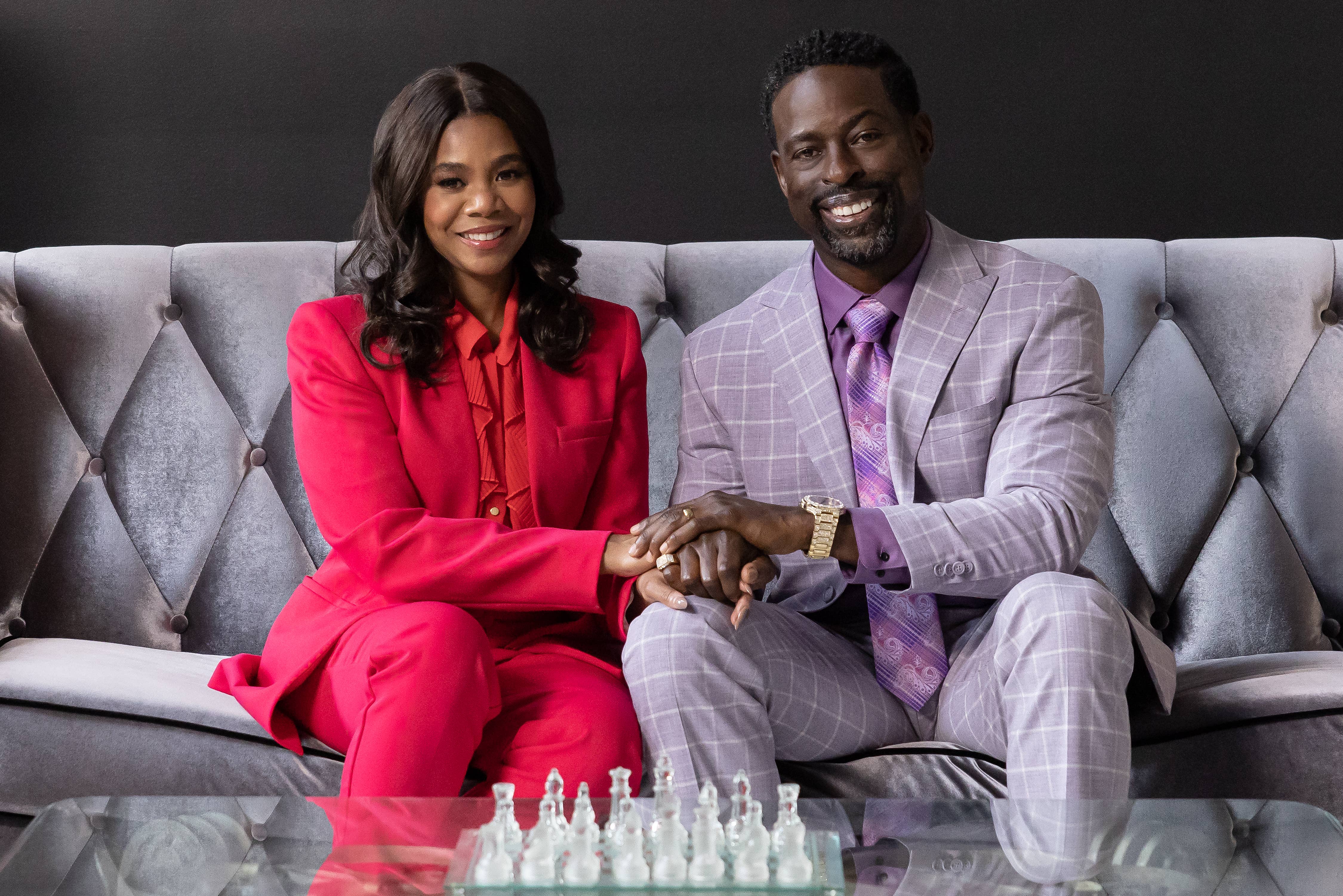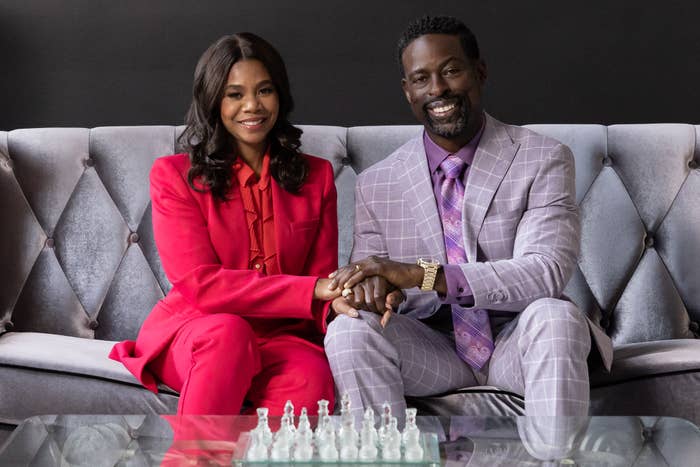
Honk for Jesus. Save Your Soul. is not trying to make fun of the church or its people. Instead, the satirical comedy aims to peel back the layers of the usually revered church leaders. The film was written and directed by Adamma Ebo in her feature directorial debut and produced by her twin sister Adanne Ebo.
The feature-length film is an adaptation of the director’s 2018 short film of the same name and stars the always brilliant Regina Hall as Trinitie Childs and Sterling K. Brown as Pastor Lee-Curtis Childs. Trinitie is the proud first lady of a respected Southern Baptist megachurch, who together with her husband used to serve a congregation in the tens of thousands. The couple is now forced to rebuild after the pastor found himself in a scandal that led to their church being temporarily closed. The Childs bring in a film crew to document their comeback as they attempt to repair their image in order to reopen their church and reconnect with their congregation.
As they are preparing to relaunch, the pair also have to face the realities of their marriage behind the scenes. They present a united front when the documentary cameras are on, but the turmoil and the deep brokenness in their marriage are also captured when they’re not looking. Although the movie doesn’t outright say what the scandal was, it does allude to the pastor having inappropriate relationships and making advances on younger men. Both Trinitie and her husband have to carry on as if that’s not a big issue in their relationship, and they have to power through, cracks and all, in order to keep their church in business.
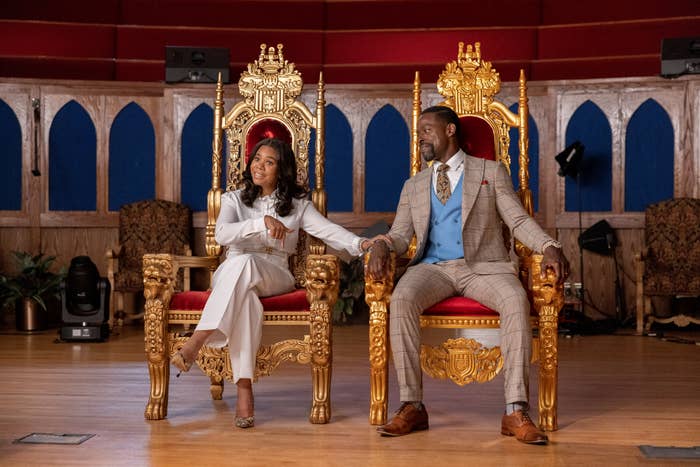
The story got Issa Rae’s attention and she featured the short as part of her Short Film Sundays on her company Hoorae’s YouTube channel in 2019. Jordan Peele and Daniel Kaluuya are also among the feature film’s producers with their Monkeypaw and 59% production companies. Even after those co-signs, Honk for Jesus is still considered a smaller project, but Hall and Brown—who both have extensive and admirable careers—were eager to work alongside the Ebo twins just based on the uniqueness of the story they were telling. “Working with them both was such a dream, besides them being phenomenal actors, which I knew,” the director tells Complex about the film’s stars. “They were just so passionate and so determined to help us succeed...This is a small, independent film, and they were completely invested in our vision but also personally invested in us, particularly as young, Black women who were shooting their first feature. Both of them at one point said they had never been directed by a Black woman before.”
Both actors delivered incredible performances as the Childs. Hall is known for her hilarious, over-the-top performances, but as Trinitie, she is funny but also reflective, sorrowful, and composed. Brown also has a long list of projects on his résumé, but for the last six years, he’s been mostly known and beloved for his role as the kindhearted Randall Pearson in the NBC drama series This Is Us. This role as Pastor Childs is tricky for Brown since some viewers might find him to be dislikable and pompous, but that’s an actor’s job—to be able to play a wide range of roles and do so well.
Complex caught up with Hall and Brown to chat all about Honk for Jesus, their relationships with the church, working with the Ebo twins, and more. Check out the interview below and catch the movie in theaters or on Peacock starting Friday (Sept. 2).
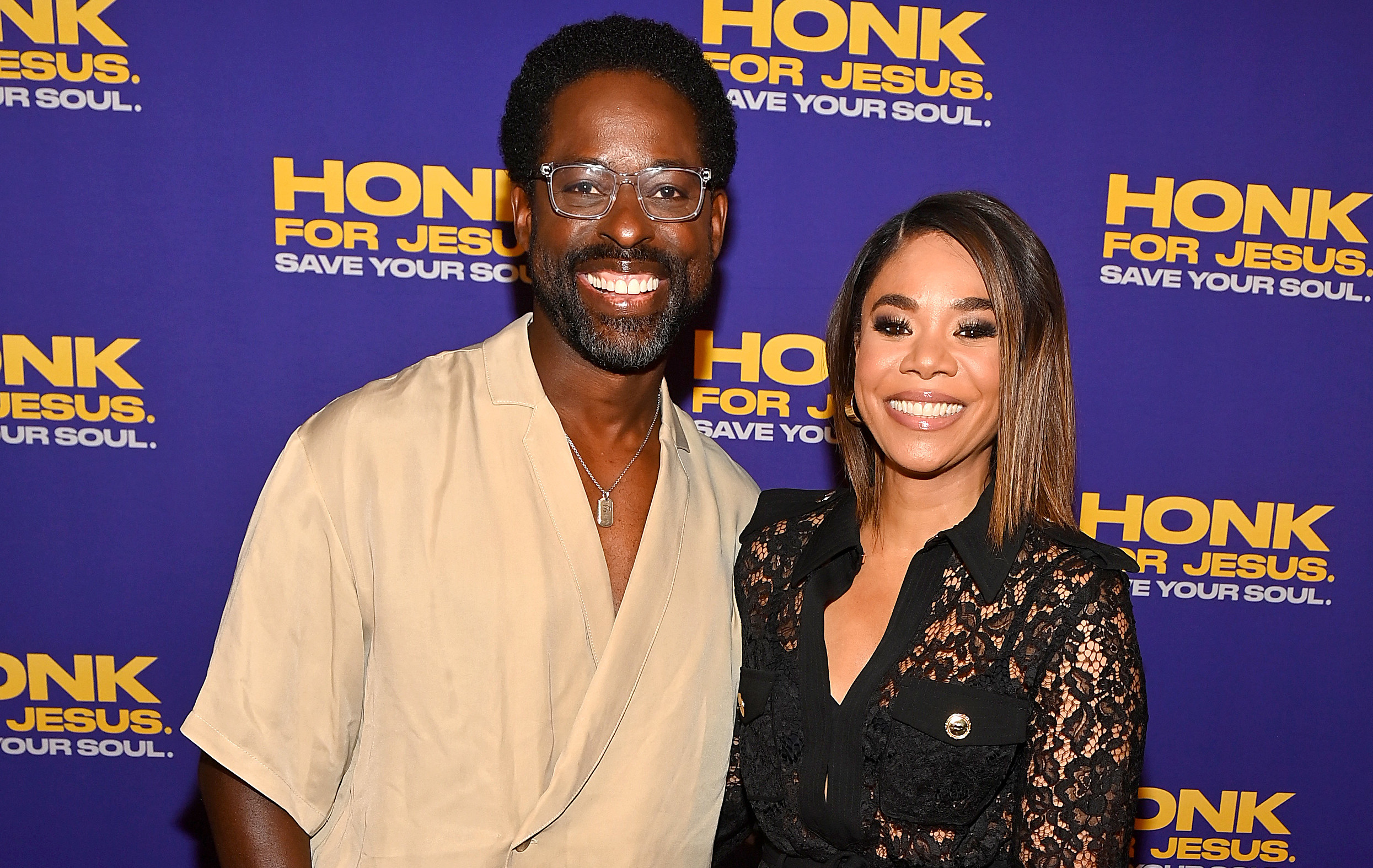
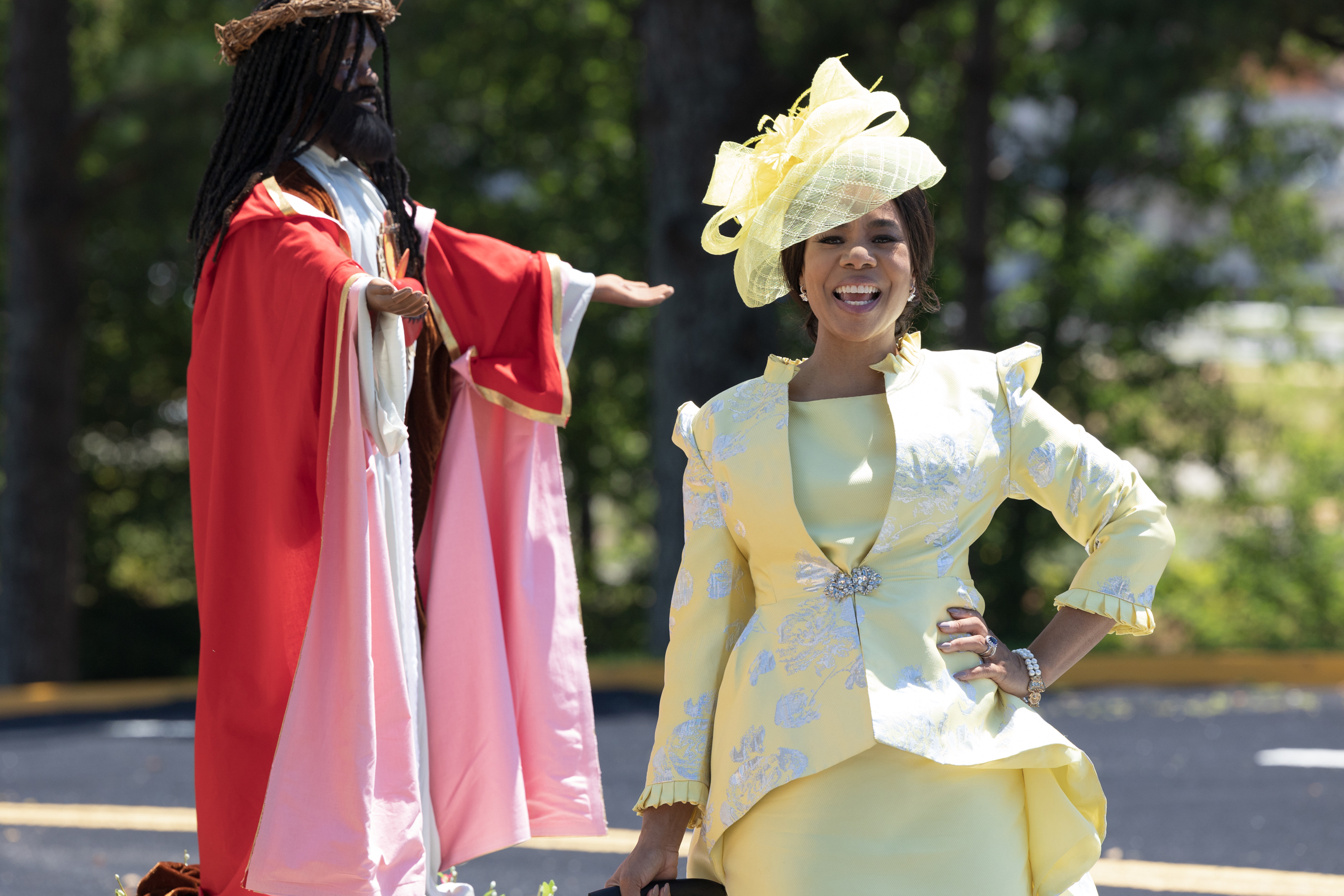
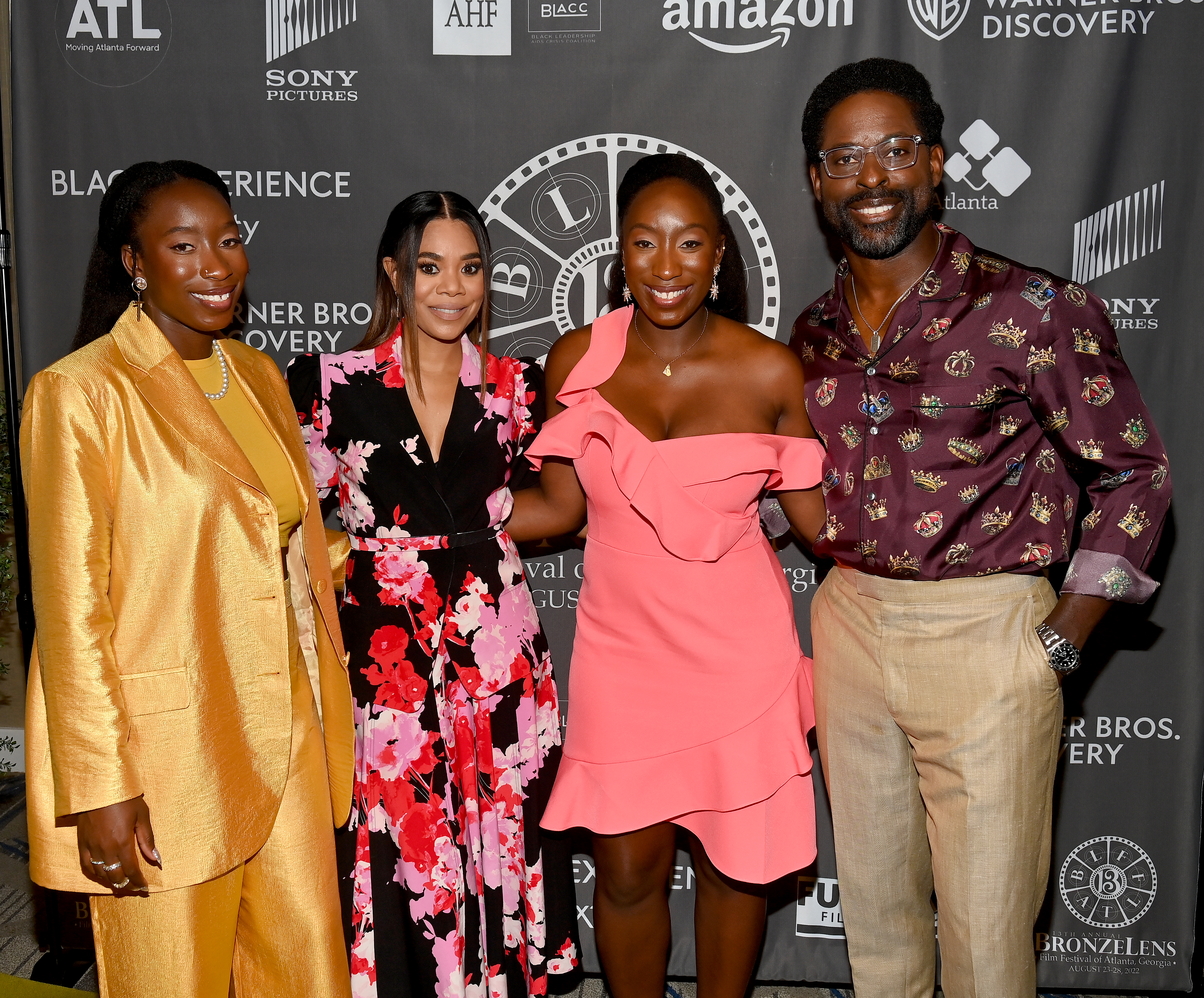

Do you hope that Honk for Jesus also helps show people that pastors and the first lady and the people who built these megachurches are also human and they make mistakes and they’re not the flawless entertainers that we see Sunday after Sunday?
SB: They’re definitely just people. And I think our watching men and women of the cloth has a tendency to want to elevate them as if they have a closer relationship with God than us. We depend upon them to interpret the word forward. Those people are important. Those people can help lead you to a path. But I also think that I hope that the film engenders this idea that you can take personal responsibility for your own walk, right? And that you can look for guidance and suggestions from people or whatnot, but be careful not to make them too high because they’re just people.
Are you nervous at all about how churchgoers are going to react to the film, or maybe it adds fuel to the misconceptions that non-churchgoers already have about churches?
SB: I’m nervous about my momma, if I’m being perfectly honest. I feel like mom will be like, “All right, bro, you’ve been out in Hollywood long enough and now you’re finally going to hell.” [Laughs.]
RH: Next stop!
SB: You know what I’m saying? I’m like Anakin out this piece, I’m a Sith now. No, I’m curious about what she says. I’m not nervous. I know there will be some folks who will bristle.
RH: I think once we said “yes,” the response was going to be the response, right? But I do think people will see there’s love for the church. This was not to make fun of religion, the institution of religion, the church, or pastors. It really is this couple’s journey, but there are things that echo and that’s OK because it’s time that we have these kinds of conversations about the church.
SB: Not to make fun of but to have some level of introspection to question the institutions that are near and dear to us.

